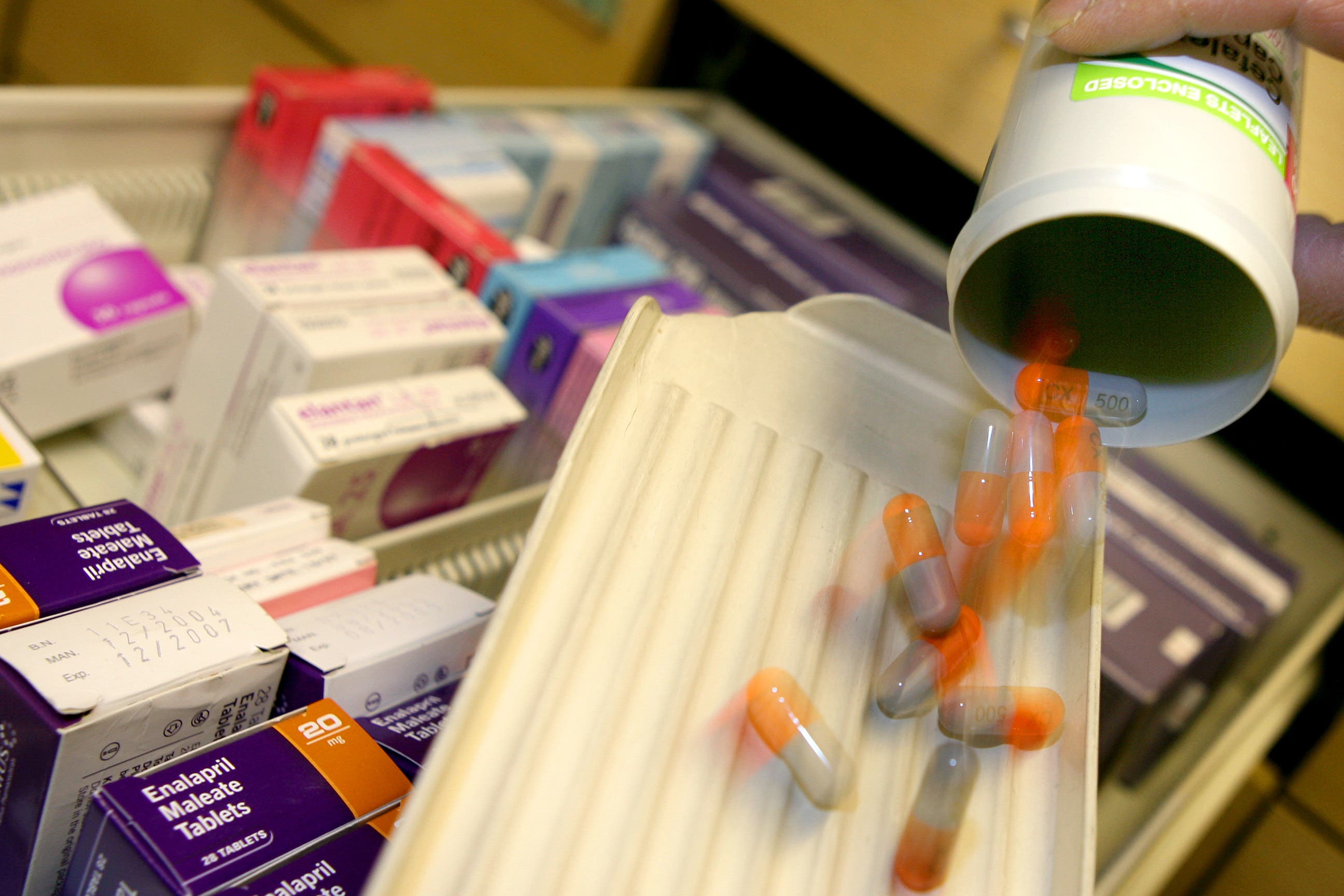80-year-old antibiotic may be effective against drug resistant bacteria – study
The finding may offer a new way to fight difficult-to-treat and potentially lethal infections, researchers suggest.

Your support helps us to tell the story
From reproductive rights to climate change to Big Tech, The Independent is on the ground when the story is developing. Whether it's investigating the financials of Elon Musk's pro-Trump PAC or producing our latest documentary, 'The A Word', which shines a light on the American women fighting for reproductive rights, we know how important it is to parse out the facts from the messaging.
At such a critical moment in US history, we need reporters on the ground. Your donation allows us to keep sending journalists to speak to both sides of the story.
The Independent is trusted by Americans across the entire political spectrum. And unlike many other quality news outlets, we choose not to lock Americans out of our reporting and analysis with paywalls. We believe quality journalism should be available to everyone, paid for by those who can afford it.
Your support makes all the difference.An 80-year-old neglected antibiotic may provide protection against multi-drug resistant bacterial infections, new research suggests.
The finding may offer a new way to fight difficult-to-treat and potentially lethal infections, experts say.
Nourseothricin, a natural product made by a soil fungus, contains multiple forms of a complex molecule called streptothricin.
Isolated in 1942, streptothricin was the first antibiotic discovered with potent gram-negative activity
In the 1940s its discovery generated high hopes for it as a powerful agent against gram-negative (resistant to many drugs) bacteria, which, due to their thick outer protective layer, are especially hard to kill with other antibiotics.
However, nourseothricin was toxic to kidneys, and its development was dropped.
But now researchers suggest better purification overcomes original concerns around this issue.
The rise of antibiotic-resistant bacterial infections has ignited the search for new antibiotics, leading James Kirby of Harvard Medical School, America, and colleagues to look at nourseothricin again.
Early studies of the product suffered from incomplete purification of the streptothricins.
However, according to more recent research, different forms have different toxicities with one, streptothricin-F, significantly less toxic, yet still highly active against contemporary multidrug-resistant pathogens.
In the new study researchers characterised the antibacterial action, renal toxicity and mechanism of action of highly purified forms of two different streptothricins, D and F.
While the D form was more powerful than the F form against drug-resistant Enterobacterales (a large group of different types of germs – bacteria – that commonly cause infections in healthcare settings) and other bacterial species.
However, it was toxic to kidneys at a lower dose, the study found.
Dr Kirby said: “Based on unique, promising activity we believe the streptothricin scaffold deserves further pre-clinical exploration as a potential therapeutic for the treatment of multidrug-resistant, gram-negative pathogens.”
He added: “Isolated in 1942, streptothricin was the first antibiotic discovered with potent gram-negative activity.
“We find that not only is it activity potent, but that it is highly active the hardiest contemporary multidrug-resistant pathogens and works by a unique mechanism to inhibition protein synthesis.”
The findings are published in the Plos Biology journal.